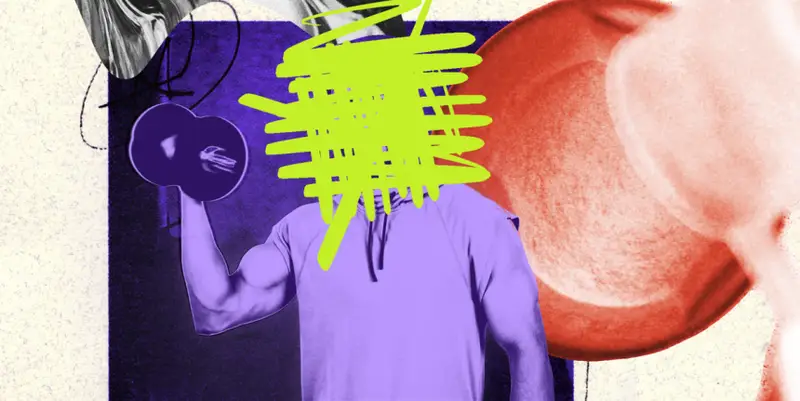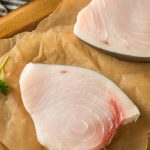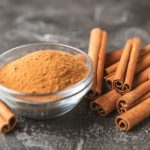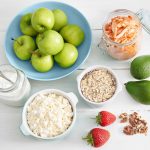MORE KIDS ARE taking dietary supplements than you would possibly suppose. In 2022, researchers discovered that 33 % of ladies and 55 % of boys reported taking protein powder or consuming protein shakes. A 2024 examine assessment discovered that as many as 25.7 % of adolescent boys stated they’ve taken creatine. One in ten adolescents have taken a weight reduction complement or an over-the-counter food regimen capsule, in line with a examine from 2024.
Looks as if loads, proper? Properly, muscle-building and weight-loss dietary supplements aren’t precisely below lock-and-key. In 49 U.S. states, minors can legally purchase protein powder, creatine, and fats burners from a brick-and-mortar complement retailer. (And if you happen to’re underage and have a bank card, you should buy them on-line from any state.)
Some mother and father are even pushing their youngsters to purchase protein powder. In a 2024 ballot, amongst mother and father whose stated that their teen consumed protein dietary supplements, 44 % stated they, the mum or dad, or one other member of the family, inspired their teen to take a protein complement.
These developments are one thing we witnessed as we reported and filmed Technology Flex, our full-length documentary about boys, dietary supplements, social media, and muscle-building. Youngsters are taking dietary supplements as a result of they wish to bulk up or slim down. However ought to they?
Dad and mom, coaches, and caregivers are usually of two minds. Some are pondering that dietary supplements should be comparatively low danger as a result of everyone seems to be taking them and who would not need an edge to construct muscle, reduce weight, and improve sports activities efficiency? Others are questioning if adolescents and youths really want any of these items.
The reality sits someplace in between and largely offers with elements that embrace age, meant use, kind of complement, high quality of complement, a physician’s opinion, and what the remainder of their food regimen appears to be like like.
To construct the definitive complement shopping for information for teenagers and oldsters, we studied the analysis, talked to prime consultants, and drew from Males’s Well being’s huge institutional data protecting dietary supplements for 35+ years.
However sufficient build-up. You might have questions. Now we have solutions.
What Age Ought to You Begin Taking Dietary supplements?
WE’RE GUESSING THAT you are not speaking about multivitamins. (However in case you are, you possibly can head right here.) You are speaking about protein powder, creatine, pre-workout, and possibly even weight-loss dietary supplements.
The reply for all these dietary supplements is similar: The overwhelming majority of youngsters—that could be a particular person below the age of 18—doesn’t want any of them.
The American Academy of Pediatrics states that “Younger athletes can enhance their sports activities efficiency by specializing in the fundamentals: fluids, energy, coaching, conditioning, and relaxation. Shortcuts, comparable to using performance-enhancing substances and dietary supplements, are of little profit and will be harmful.”
All types of dangerous issues have been present in dietary dietary supplements, a class which the FDA regulates post-market, that means merchandise go on cabinets with out anybody checking to see if they’re protected or free from adulterants.
Extreme caffeine, amphetamines, laxatives, diuretics, steroids, and selective androgen receptor modulators (SARMS)—they’ve all turned up in dietary supplements out there to shoppers. Even when an adolescent or teen doesn’t endure rapid issues from any of those substances, a optimistic check for a banned-from-sport substance can get a child kicked off their group. Investigative medicine like SARMS have unknown security profiles and will ship surprising long-term negative effects later in life. And all these negative effects can occur even when the kid takes the dosage really useful on the complement label.
So youngsters don’t want muscle-enhancing dietary supplements. However what if they need them as a result of they imagine they’ll assist them get an edge in sports activities or within the gymnasium?
Whereas supplementing with protein powder and/or creatine could also be useful for adults (what little analysis exists on youngsters is inconclusive) supplementation usually gives a 2 to five % increase in power and energy, says Brian St. Pierre, R.D., C.S.C.S., director of Precision Diet, and an knowledgeable that seems in Technology Flex.
However youngsters are naturally getting the same increase simply by rising. This is the reason supplementation comes later, if it comes in any respect, says St. Pierre. “Getting sufficient protein and getting sufficient sleep will make a far greater distinction.”
TrueSport, a division of the U.S. Anti-Doping Company, takes this place: “In youth sports activities and scholastic sports activities, the bodily calls for of coaching and competitors can virtually all the time be met via a various food regimen wealthy in complete meals.”
Rising youngsters ought to deal with their food regimen as a substitute of supplementation. And their progress is all of the performance-enhancement they want. “They’re going to be maximizing their beneficial properties simply by consuming properly as a result of they’re so new to (train),” says St. Pierre. “They don’t want some other enhancement.”
To be much more direct: If youngsters are assembly their baseline dietary necessities by consuming complete meals—together with getting sufficient protein—then there isn’t any profit to them supplementing so far as muscle progress.
So youngsters who don’t have any pure dietary deficiency and determine to take dietary supplements are losing their cash.
Wait, Come On, Actually? Even Protein Powder?
YES, REALLY. So long as the child is hitting their each day protein objectives via complete meals, dietary supplements (together with protein powder) will not profit them. This even consists of severe teenage athletes with their eyes set on school or professional sports activities.
What’s extra, counting on protein powder or another concentrated type of a complement may imply lacking out on hint minerals, fiber, calcium, and different key vitamins present in meals. “Utilizing a complement may appear to be a step ahead however may really be two steps again,” says Amy Eichner, Ph.D., from the U.S. Anti-Doping Company.
That stated, if the child is struggling to hit protein objectives, they usually’ve talked to a physician about that wrestle, and that physician doesn’t oppose them taking a fundamental protein powder, then protein powder supplementation may be an choice.
It is not like youngsters cannot have a protein bar or shake ever. Even St. Pierre makes “tremendous shakes” for his youngsters. He places in protein powder, but additionally fruit, greens, and wholesome fat. “A shake like that is extremely healthful,” he says. “Much more so than most snacks youngsters eat!”
However St. Pierre stresses that any complement you purchase needs to be third-party examined by an impartial lab. There are lots of labs on this house, however the ones that carry the gold-standard are NSF, United States Pharmacopeia (USP), and Knowledgeable Selection.
Third-party verification ensures:
The complement is freed from substances banned from sportWhat’s listed on the substances checklist is, in truth, within the complement itselfThe quantities listed on the Diet Info Panel are correct.
Not all dietary supplements have third-party certification—in truth, many do not.
“We suggest all athletes use third-party licensed dietary supplements which were examined for substances prohibited in sport,” Eichner says. Even when youngsters usually are not drug-tested as a part of their sport, even low ranges of hormones or different medicine can have an outsized impression on a rising physique so it’s higher to make use of merchandise which can be licensed as free from such contaminants.
A number of boys interviewed in Technology Flex talked about taking dietary supplements in its place to consuming meals, which result in fatigue, dehydration, nausea, and malnutrition.
Ought to Youngsters Take Creatine?
CREATINE MONOHYDRATE, the artificial spinoff of creatine present in animal merchandise, helps our bodies retailer ATP, a type of power that turbocharges explosive train, comparable to weight lifting or sprinting.
Though the FDA categorizes creatine monohydrate as a substance that’s “usually acknowledged as protected,” and that designation extends to older kids and adults, there’s little analysis on the security and effectiveness of creatine supplementation in youngsters. What few research exist are “not sufficient to be totally assured of its security on this inhabitants,” says St. Pierre. The American Medical Society for Sports activities Medication and the American Academy of Pediatrics additionally state that children mustn’t take creatine.
That will not cease youngsters from shopping for creatine—or retailers from promoting it to them both. When researchers impersonated a 15-year-old boy and referred to as 244 well being meals shops throughout the U.S., they discovered that roughly 67 % of gross sales attendants really useful shopping for and taking creatine, in line with a 2017 examine.
Ought to Youngsters Take Pre-Exercise Dietary supplements?
NO—AND DEPENDING on the product, they will not be protected for some adults both.
Pre-workout dietary supplements are offered as a approach to improve power previous to a exercise in order that an individual can carry out higher. However the major stimulant in pre-workout dietary supplements is usually caffeine, and pre-workout also can include different stimulants, in line with the Nationwide Federation of Excessive Colleges.
Pre-workout dietary supplements can pack as a lot as 300 milligrams of caffeine per serving—greater than thrice what’s in a cup of espresso. Youngsters who eat an excessive amount of caffeine can have points with nervousness, blood strain, acid reflux disorder, and sleep.
And, as beforehand reported by Males’s Well being, pre-workout dietary supplements typically include an extended checklist of different substances, comparable to Panax ginseng and deer-antler velvet (!), that are supposedly good for reinforcing power ranges. These substances have little analysis backing their claims. What’s worse, in a 2019 examine, scientists assessed 100 pre-workout merchandise and located that the quantities of almost half of the substances weren’t disclosed on the label.
Ought to Youngsters Take a Weight-Loss Dietary supplements?
ALSO NO.
Weight-loss dietary supplements (tablets, teas, diuretics, laxatives) could not solely include excessive ranges of caffeine, but additionally substances that may trigger GI points and intervene negatively with different drugs, in line with a 2022 examine assessment. (“I’m very leery of anybody utilizing weight-loss dietary supplements,” says St. Pierre.)
The potential dangers are as a lot bodily as they’re psychological—particularly for youths.
Within the 2024 examine that discovered 1 in 10 adolescents have taken a weight-loss complement, the researchers cited a robust hyperlink between using non-prescribed weight-loss merchandise and low vanity, despair, poor dietary consumption, and substance use later in life.
What Dietary supplements Ought to Youngsters Take?
IF THE PERSON is older—or beneath the age of 18 and scuffling with protein consumption—then they need to first know the solutions to a couple questions earlier than consuming protein powder. (Pre-workout and weight-loss dietary supplements aren’t mandatory at any age and pose danger.)
Do they interact in intense, common bodily exercise? Are they already consuming properly, consuming loads of vegetables and fruit within the type of common meals? Do they exhibit the duty to solely take dietary supplements on the really useful dose? Have they talked to their major care doctor and/or dietitian about supplementation?Is the complement third-party licensed by the likes of NSF, USP, or Knowledgeable Selection?What Dietary supplements Ought to You Take?
HERE ARE A couple of of our favorites that we have come to like (and belief) through the years.
The Males’s Well being Greatest-Ever Dietary supplements
High Whey Protein Powder
Optimum Diet Gold Customary 100% Whey
You’ve got in all probability seen these items all over the place—and for good cause. This tried-and-true, dairy-derived protein powder is third-party licensed through Knowledgeable Selection, accommodates 24 grams of protein per scoop for only one grams of sugar, blends up easy, and each considered one of their 15+ flavors tastes wonderful.
High Plant-Based mostly Protein Powder
Bare Pea Protein Powder
Now 98% Off
Analysis has proven that pea protein is simply as efficient as whey protein for constructing power and muscle. So if you happen to’re avoiding dairy, this protein powder is a superb go-to. It has one ingredient—yellow peas—and packs 27 grams of protein per scoop. A jug additionally carries an Knowledgeable Selection certification. In case you’re not a fan of the unflavored style, they make vanilla and chocolate varieties too.
High Creatine (18+)
NSF-certified for sport, a dosage of 5 grams of creatine monohydrate (and that is it)—this powder is straightforward. And that is precisely what you need in a creatine. It is unflavored, so combine it right into a smoothie or one other drink to assist it go down straightforward. Keep in mind, too, that creatine just isn’t really useful—and even helpful, actually—for anybody below the age of 18.
Go to USADA.org for extra info on the dangers of steroids, dietary supplements, and different performance-enhancing substances. USADA’s assets embrace a diet information and a complement information.
LEARN MORERelated Tales
Animations by Cameron Sherrill.
Brian St. Pierre, MS, RD, CSCS, CISSN, Pn1, is the Director of Efficiency Diet at Precision Diet. He leads of group of almost 20 knowledgeable coaches, serving to people of all backgrounds attain their private {and professional} objectives. As well as, he works with a number of health professionals {and professional} sports activities groups together with the San Antonio Spurs, Cleveland Browns, US Open Champion Sloane Stephens, and extra.
Amy Eichner, Ph.D., is Particular Advisor on Medicine and Dietary supplements at US Anti-Doping Company.









